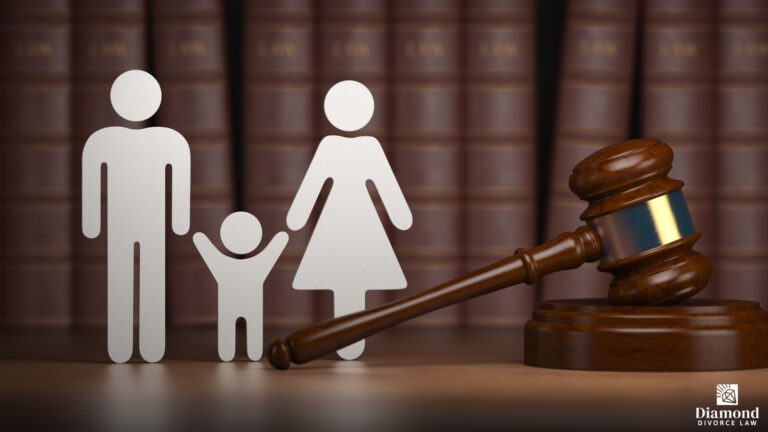Top 5 Questions and Answers about Illinois Alimony
Alimony, called “maintenance” in Illinois, can come in several different forms to fit a number of situations. Many of our clients have questions about it, which is completely understandable – we’d like to take a moment to answer several of the frequently asked alimony questions here.
Before we dive into the questions though, it’s important to understand what maintenance is (and what it’s not).
The purpose for maintenance is to allow the lower-earning spouse to maintain a similar standard of living as they had during the marriage. There are a number of variables that are considered when determining maintenance eligibility and amounts.
Ultimately, the court will take all of these into account before making a decision.
What Is the Difference Between Maintenance and Child Support?
Simply put, child support is meant to do just that – provide financial support for the couple’s children. It can go to pay for things like education, food, clothing, transportation, activities, and medical costs. It is not to be used for personal expenses that are not related to your children.
Maintenance (alimony), on the other hand, is meant to pay for a wide range of things such as mortgage or rent, expenses related to the home, utilities, healthcare, education or job training, childcare, transportation, debt repayment, and retirement, among others. In Illinois, there is no specific designation for how maintenance is to be spent.
What Factors Are Considered When Granting Maintenance?
The Illinois laws regarding alimony, or maintenance, changed in 2023; payments and eligibility are now based on a number of factors, including:
- The income earned by each party
- The standard of living enjoyed during the marriage
- The needs of each party
- The duration of the marriage
- The earning ability or impairments of each party
- And more.
Because of this, if you and your spouse agree on an uncontested divorce, you may be able to agree on maintenance payments; if this is not possible, the court will decide.
What is the Purpose of Maintenance?
Contrary to popular belief, alimony or maintenance is not a way to “get back at” or “stick it to” your spouse. It is not a punishment, but a way to even out financial disparities and avoid putting one spouse in a financial crisis.
For example, if one spouse was willingly unemployed for a number of years to stay home and care for the children, it may be very challenging for them to quickly find employment. They may need additional training in order to gain new job skills that have arisen since they were last employed.
If one spouse has a disability that prevents them from obtaining a job, they may need longer-term support. If one spouse was the “breadwinner” while the other spouse actively volunteered, maintenance could be applicable for a time.
These are just examples, of course; there are a number of situations that could warrant maintenance. If you have questions and would like to speak to a lawyer, please call our office – we’re happy to answer!
Types of Alimony or Maintenance in Illinois
There are four different types of maintenance, each of which applies to different situations.
- Temporary Maintenance provides support for the lower-earning spouse during the divorce proceedings. This type of maintenance is meant to pay immediate costs while that spouse gets on their feet.
- Fixed Term Maintenance is one of the most common forms, and is granted for a specific period of time. This period is often determined as a percentage of the time the couple was married. It is usually a longer period of time than temporary maintenance, but unless the ruling is modified, it will stop at the end of the term.
- Indefinite Maintenance is very much what it sounds like – it will continue until it is either modified or terminated. This type of maintenance is generally awarded in cases where the couple was married for a significant amount of time or the lower-earning spouse has a disability or another reason they will not be able to earn an income.
- Reviewable Maintenance grants alimony payments for a specific term, but also specifies that the court can revisit the award. At that time, the judge may decide to renew, modify, or cancel the original award.
Should I Contact an Attorney?
While it is technically possible to file for divorce in Illinois without an attorney, it is rarely recommended. There are a lot of details surrounding divorce and maintenance (alimony), and without an experienced divorce attorney by your side, it is very likely some of these details will be missed. When this happens, it can cost you a lot more time, money, and frustration to straighten things out.
We strongly recommend working with an attorney who will protect your rights and help you ensure everything is done correctly the first time. At Diamond Legal, our primary goal is to help you navigate your divorce with confidence so you can protect your family, protect your assets, and reclaim your life.
Give us a call today – a friendly team member will answer your call, take your information, and get you scheduled for a free consultation with one of our attorneys. During this consult, we’ll be happy to listen to your situation, answer your questions, and help you plot a path forward.
DISCLAIMER: Any information contained herein is solely for informational purposes and is only applicable in the state of Illinois. While it is important that you educate yourself, nothing herein should be construed as legal advice or create an attorney-client relationship. For specific questions, we urge you to contact a local attorney for advice pertaining to your specific legal needs.
More Posts We Think You’ll Like

How is Alimony (or Spousal Maintenance) Calculated in Illinois?
Alimony, or “maintenance” as it is known in Illinois, can be a complicated subject. Many people wonder if they will…

How to Know if You Are Entitled to Alimony in Illinois
A question that we often receive is, “Am I eligible to receive alimony?” This is understandable, but it’s not really…

Child Support and Maintenance / Alimony in Illinois Ain’t What It Used to Be
If you are considering divorce in Illinois, it’s likely that you want to have some idea of how much child support or maintenance (formerly known…

